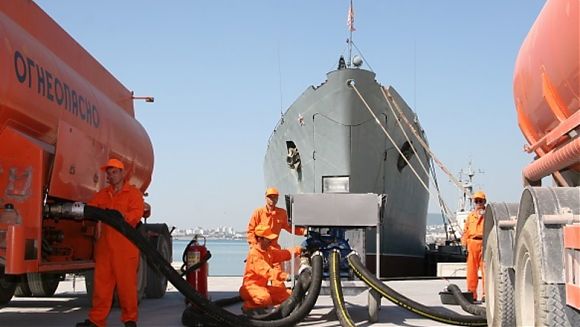Аргентина не ратифицировала Приложение VI к Конвенции МАРПОЛ, и нет внутреннего законодательства, касающегося использования систем очистки выхлопных газов. В результате не существует запрета на использование скрубберов открытого типа в территориальном море или внутренних водах (например: при маневрировании на реке Парана, или когда судно выполняет погрузочно-разгрузочные операции в порту). Прибрежные государства имеют право в соответствии с Конвенцией Организации Объединенных Наций по морскому праву принимать внутреннее законодательство и меры по сокращению и контролю загрязнения морской среды с судов во внутренних водах и территориальном море, так что в Аргентине еще предстоит обсудить эти отношения, – к такому заключению пришли авторы настоящего краткого, но очень содержательного исследования.
The International Maritime Organisation (IMO) has been working to reduce the harmful effects of shipping on the environment through the International Convention for the Prevention of Pollution from Ships (the MARPOL Convention). Annex VI of the MARPOL Convention was adopted in 1997 and addresses air pollution from shipping by limiting sulphur oxide emissions from ships to contribute to a cleaner environment.
As of 1 January 2020, ship owners must comply with the IMO 2020 global 0.5% sulphur limit in Annex VI either by:
using low-sulphur fuel, which is normally more expensive; or
continuing to burn heavy fuel oil provided that the vessel has installed an exhaust gas cleaning system.
There are a variety of options for compliance with the requirement to use marine fuels with less than 0.5% sulphur content, including continuing to use high sulphur fuel oil in conjunction with exhaust gas abatement technology (eg, open-loop scrubbers).
While shipowners are trying to comply with IMO regulations, the challenge now is the uncertainty in jurisdictions which are not party to Annex VI of the MARPOL Convention or whose domestic regulations limit the use of open-loop scrubbers.
In the international field, Regulation 14 of Annex VI requires ships to use fuel oil with a sulphur content not exceeding 0.5% mass by mass on and after 1 January 2020. However, Regulation 4 allows the use of an alternative compliance method at least as effective in terms of emission reductions as that required by Annex VI, including the standards set out in Regulation 14 and considering any relevant guidelines developed by the IMO. In this regard, IMO Resolution MEPC 259(68) regarding Guidelines for Exhaust Gas Cleaning Systems establishes the wash-water discharge criteria and limits the pH, polycyclic aromatic hydrocarbons, turbidity/suspended particle matter and nitrates.
From an Argentine perspective, it has been reported that local agencies are advising on the alleged prohibition of open-loop scrubber use based on local regulations relating to sewage discharge according to Annex IV of the MARPOL Convention. However, this interpretation has resulted in confusion regarding the scope of Annexes IV and VI.
Argentina has not ratified Annex VI of the MARPOL Convention and there is no domestic legislation concerning the use of exhaust gas cleaning systems. As a result, there is no prohibition on the use of open-loop scrubbers in territorial seas or internal waterways (eg, when manoeuvring inbound or outbound on the Paraná River or when a vessel is idling or carrying out a loading or discharging operation at a port).
While coastal states have the right under the United Nations Convention on the Law of the Sea to adopt domestic legislation and measures to reduce and control pollution of the marine environment from ships in their internal waters and territorial seas, the debate in Argentina remains to be had.
Авторы: Francisco Venetucci, María Victoria Colella
Источник: https://www.internationallawoffice.com/Newsletters/Shipping-Transport/Argentina/Venetucci-Asociados/Use-of-open-loop-scrubbers-complies-with-Argentine-regulations?utm_source=ILO+Newsletter&utm_medium=email&utm_content=Newsletter+2020-07-29&utm_campaign=Shipping+%26+Transport+Newsletter


